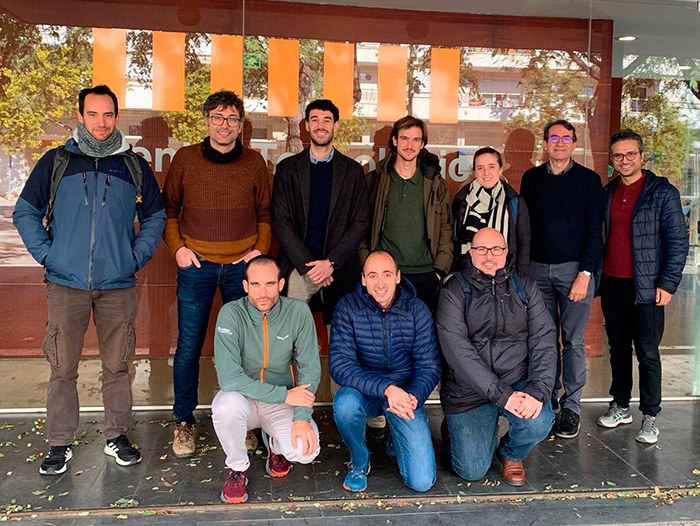The UPC participates in a marine regeneration project with industrial waste
The Technological Development Centre for Remote Acquisition and Data Processing Systems (SARTI)—affiliated with the UPC’s EPSEVG —participates in the SEASLAG project, which will provide solutions to fight marine biodiversity loss by developing a new sustainable material for the construction of marine regeneration structures. This material will incorporate by-products from the steel and agri-food industries, thus contributing to circular economy.
Mar 23, 2023
A team composed of the Technological Development Centre for Remote Acquisition and Data Processing Systems (SARTI) of the Universitat Politècnica de Catalunya - BarcelonaTech (UPC), Ocean Ecostructures, Barna Steel (a subsidiary of CELSA Group) and Leitat Technological Center has launched the project Development of new materials for marine regeneration structures from by-products of the steel and agri-food industries (SEASLAG) to fight global marine biodiversity loss.
Biodiversity loss is mainly accounted for by the conversion of marine habitats into hostile environments for marine flora and fauna, due to increased coastal activity and marine traffic and pollution by ocean dumping.
The kickoff meeting of the project took place at the SARTI-UPC facilities in Vilanova i la Geltrú on 19 January. The project is supported by ACCIÓ, the Government of Catalonia’s agency for business competitiveness, under the 2022 call for grants to industrial research and experimental development projects. SARTI is a research centre affiliated with the UPC’s Vilanova i la Geltrú School of Engineering (EPSEVG).
SEASLAG proposes a solution based on a sustainable and circular economy that promotes social and economic development while protecting the environment and preserving natural resources. Specifically, it focuses on developing a new sustainable material to create environmental regeneration structures for the growth of marine biodiversity.
SEASLAG’s major innovation is that by-products from the steel industry (e.g. white slag) and the agri-food industry (bivalve shells and egg shells) will be incorporated and valorised by developing a new natural material for the construction of marine regeneration structures. The project aims to maximise bioregeneration and promote circular economy by reducing the use of natural raw materials and valorise materials that do not have a second life.
Current solutions for marine regeneration are based on artificial reefs made of raw materials such as concrete, steel or polypropylene derivatives, which produce resistant structures suitable for the growth of marine life. Despite being highly efficient solutions, the construction of these structures involves natural resource depletion.
Based on formulations from industry by-products, SEASLAG will now develop prototypes for marine regeneration structures using 3D printing technology to create designs that best support and boost bioregeneration processes.


 Members of the teams in the SEASLAG project after the kickoff meeting in Vilanova i la Geltrú on 19 January 2023
Members of the teams in the SEASLAG project after the kickoff meeting in Vilanova i la Geltrú on 19 January 2023